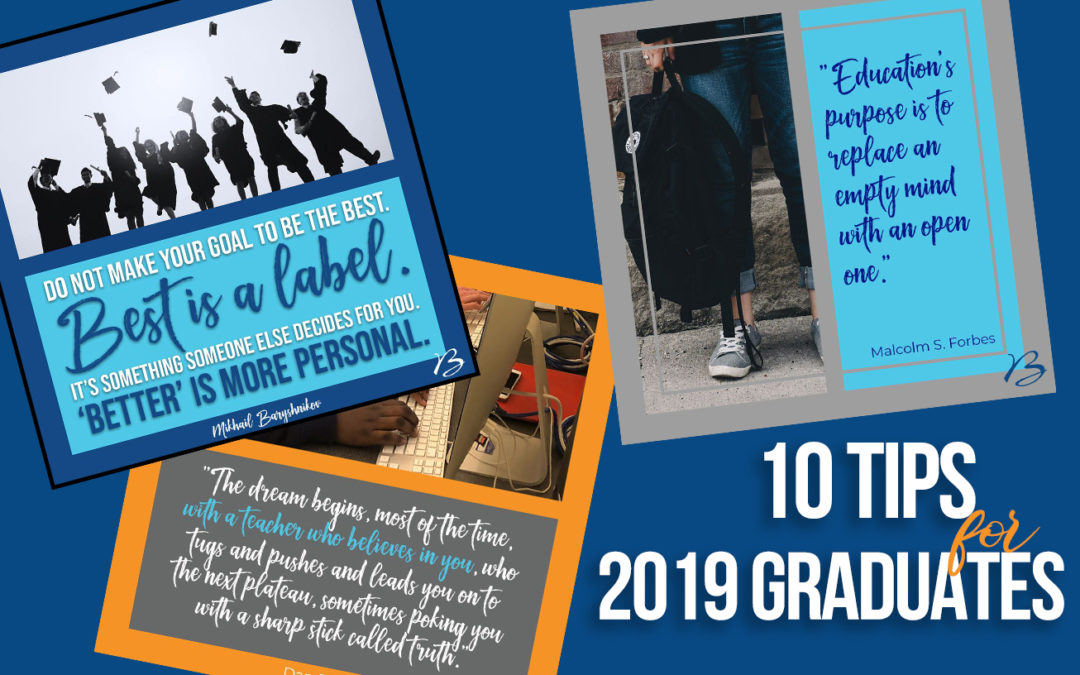It’s a season of endings and new beginnings for members of the class of 2019. Here is some wisdom and advice collected from educators who have seen many graduations! Please share this post and the images below with the graduates in your life.
Check out this list of “7 Things Every College Student Must Do” from Forbes Magazine for even more practical tips.
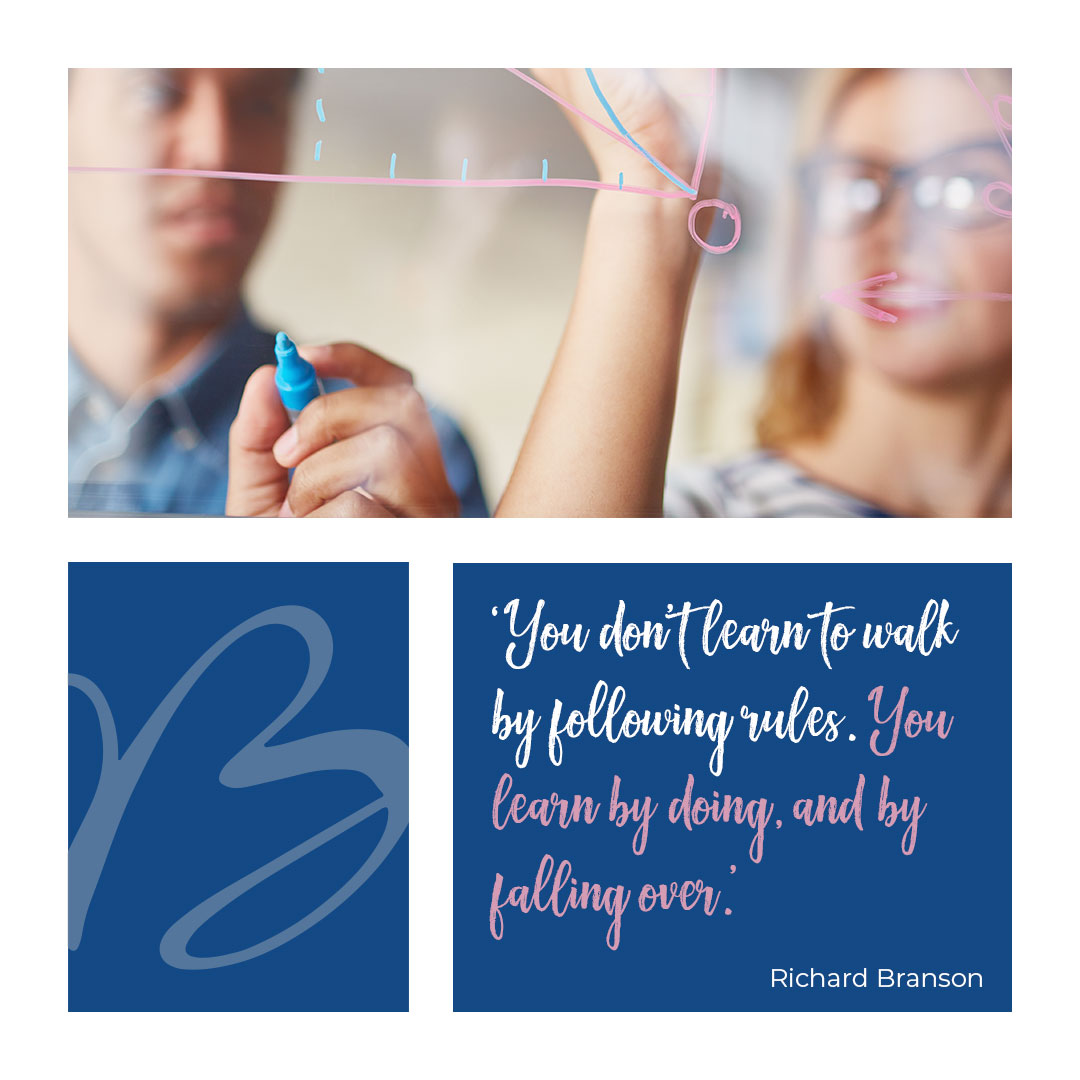
EXPERIMENT.
College has a lot of rules. Follow the ones that are in place to keep you safe and healthy. Experiment with the rules— especially the self-imposed ones— that might get in the way of exploration and experience. What would happen if you try something brand new— a course outside your major, a new extracurricular, an unexpected friendship? This is a time in your life that is dedicated to figuring out new paths.

PAY ATTENTION.
As you’re collecting new experiences, pay attention to what you’re learning about yourself. A new experience that you really enjoy might be key to a new direction that you never considered before. Did you really love that volunteer experience during orientation? Seek out the leaders and learn how to stay involved. Ace your seminar class and hungry for more? Talk to the professor and learn about opportunities.
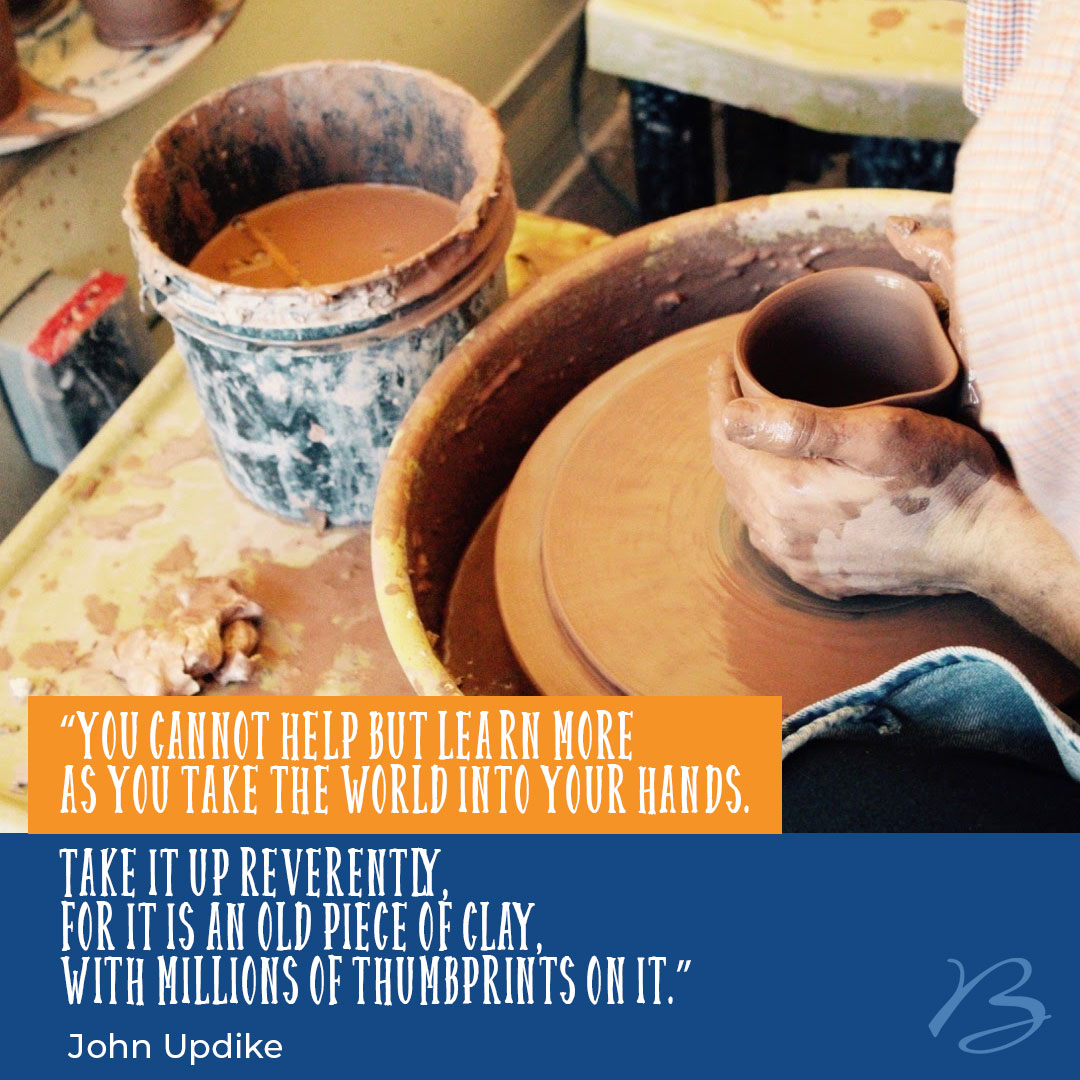
RESPECT & LISTEN.
You’re going to meet professors who are experts in their fields. Their depth of knowledge and experience is vast. Even if you don’t agree with every instructor— approach learning with a sense of respect for their commitment and contributions to their field. Learn respectfully.
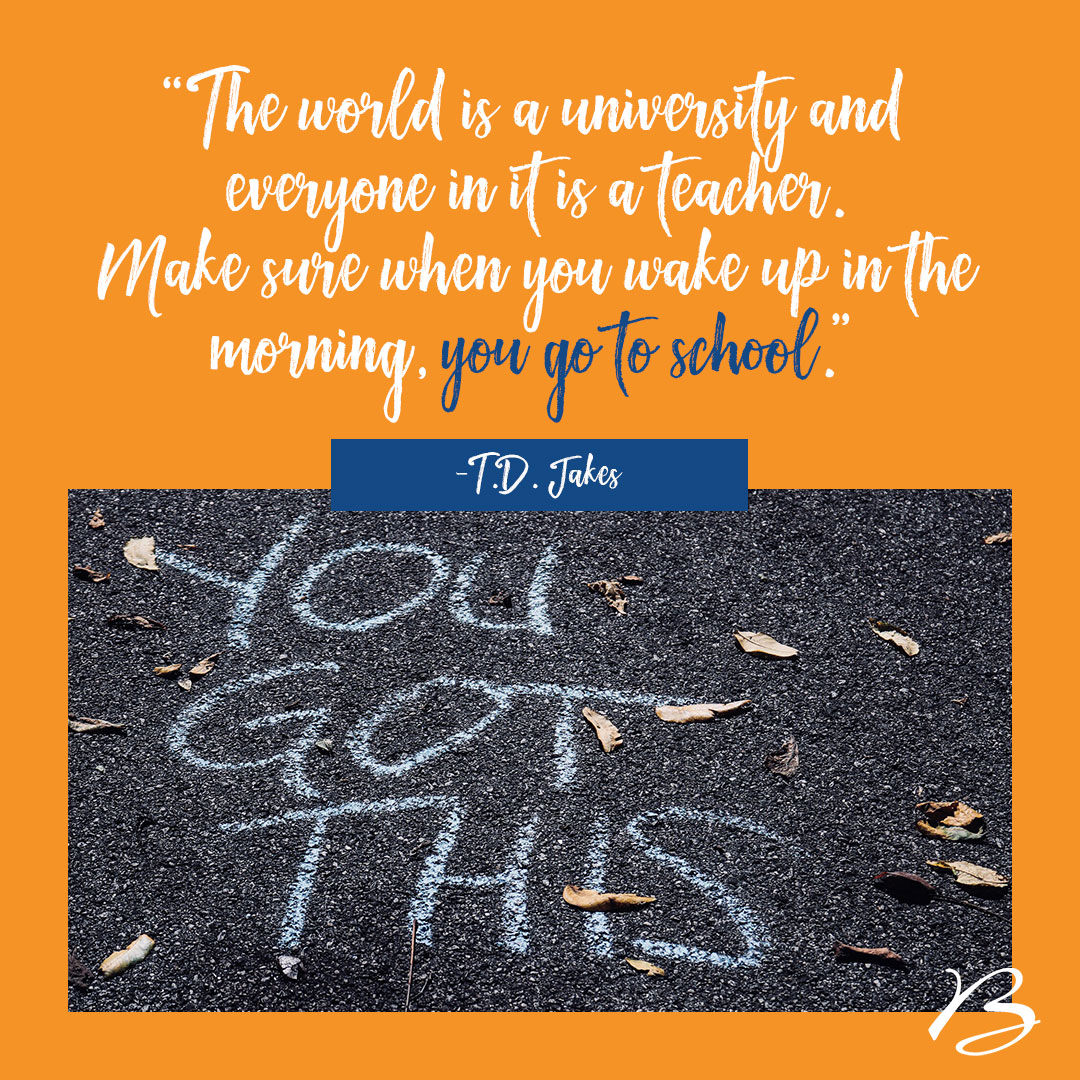
LEARN FROM EVERYONE.
Professors are not the only teachers at a college— not by a long shot. You may learn just as much from your roommate, your RA, your adviser, your friends, the people who are not your friends, the registrar, the staff in the dining hall… every day is a new chance to learn something new.

STAY OPEN MINDED.
You’re going to encounter people whose life experiences and belief systems are completely different from yours. Listen, learn, and be very deliberate about judgement. The more you can open your mind, the more you will learn. And after all, with that price sticker on your education, don’t you want to learn as much as possible?
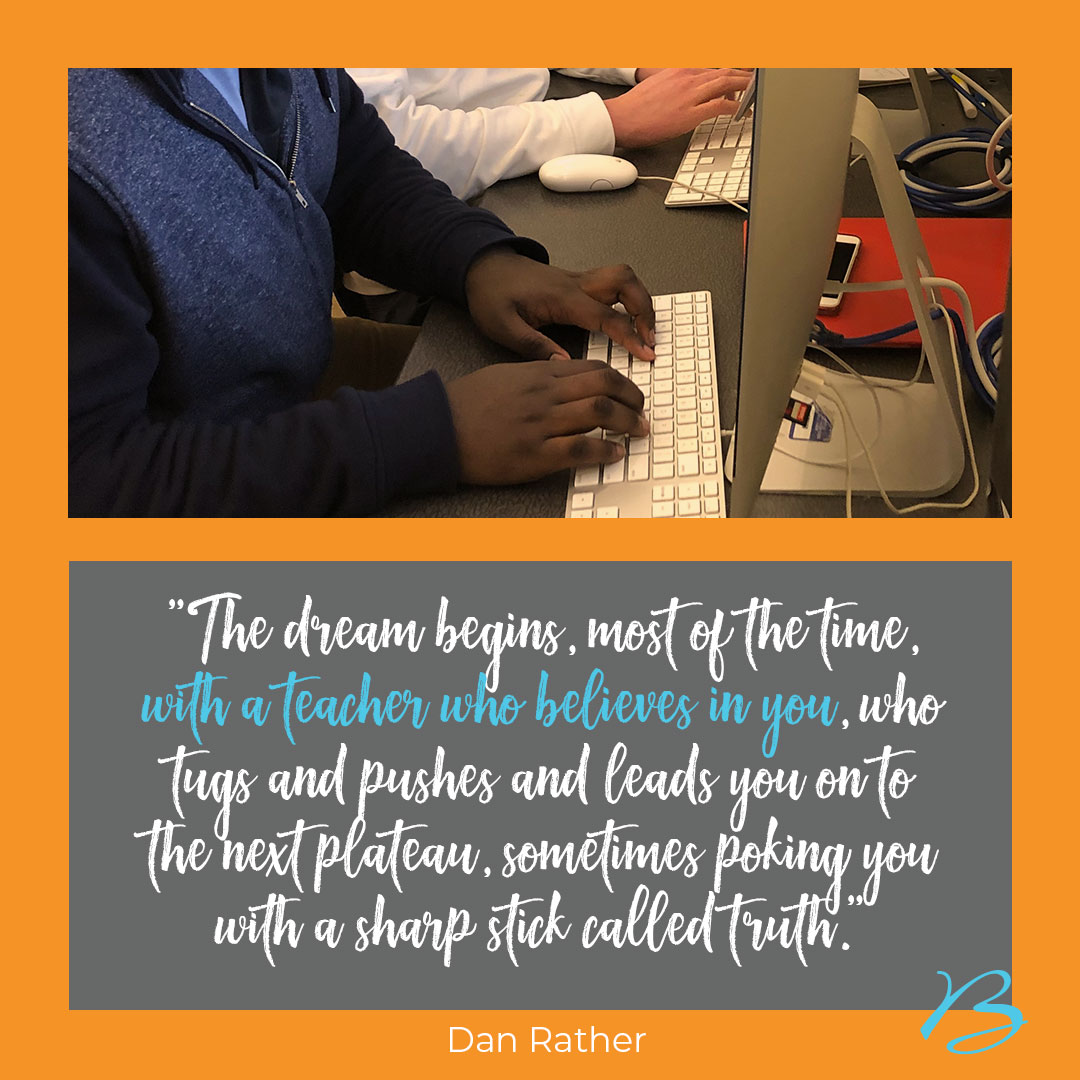
FIND A MENTOR.
It seems obvious, but it’s also been proven by research: mentorship plays a key role in the overall quality of your college experience. In a 2018 national poll, more than 80% of respondents reported their most important faculty or staff relationship formed in college was with someone who made them excited about learning, cared about them as a person and encouraged them to pursue their dreams. And, interestingly, 60% reported meeting those mentors during their first year of college. Seek out the people who will help you to grow.
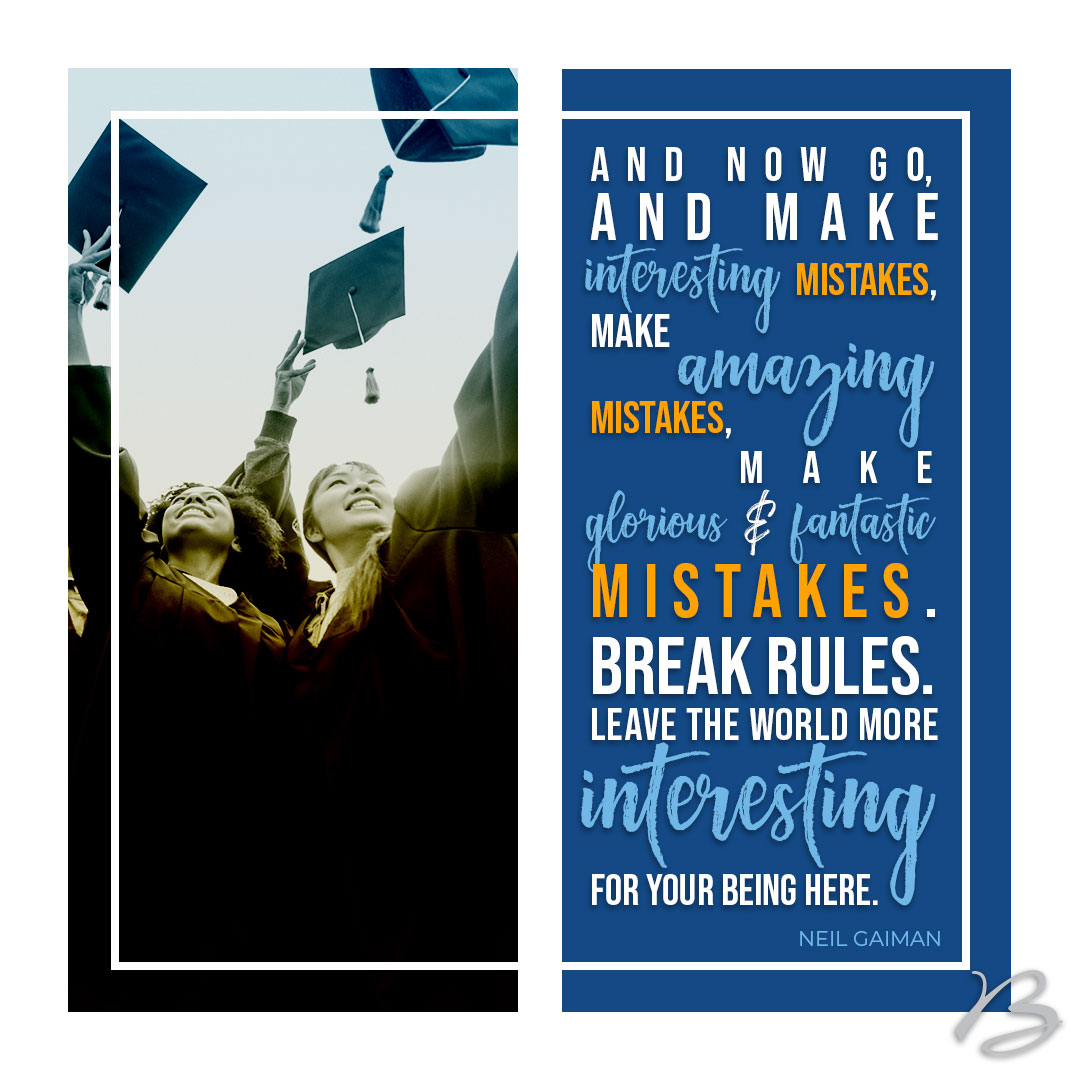
MAKE MISTAKES—AND LEARN FROM THEM.
Although college may feel like a big step out of your safety net, it’s still not quite the real world. You are safe. You have a dedicated community of faculty, staff, and peers who will support you in taking a risk or trying something new. Technological connectedness has made this more difficult that it was in the past, but consider this quote from Miles Davis: “It’s not the note you play that’s the wrong note — it’s the note you play afterwards that makes it right or wrong.”

STAY OPEN MINDED.
You’re going to encounter people whose life experiences and belief systems are completely different from yours. Listen, learn, and be very deliberate about judgement. The more you can open your mind, the more you will learn. And after all, with that price sticker on your education, don’t you want to learn as much as possible?
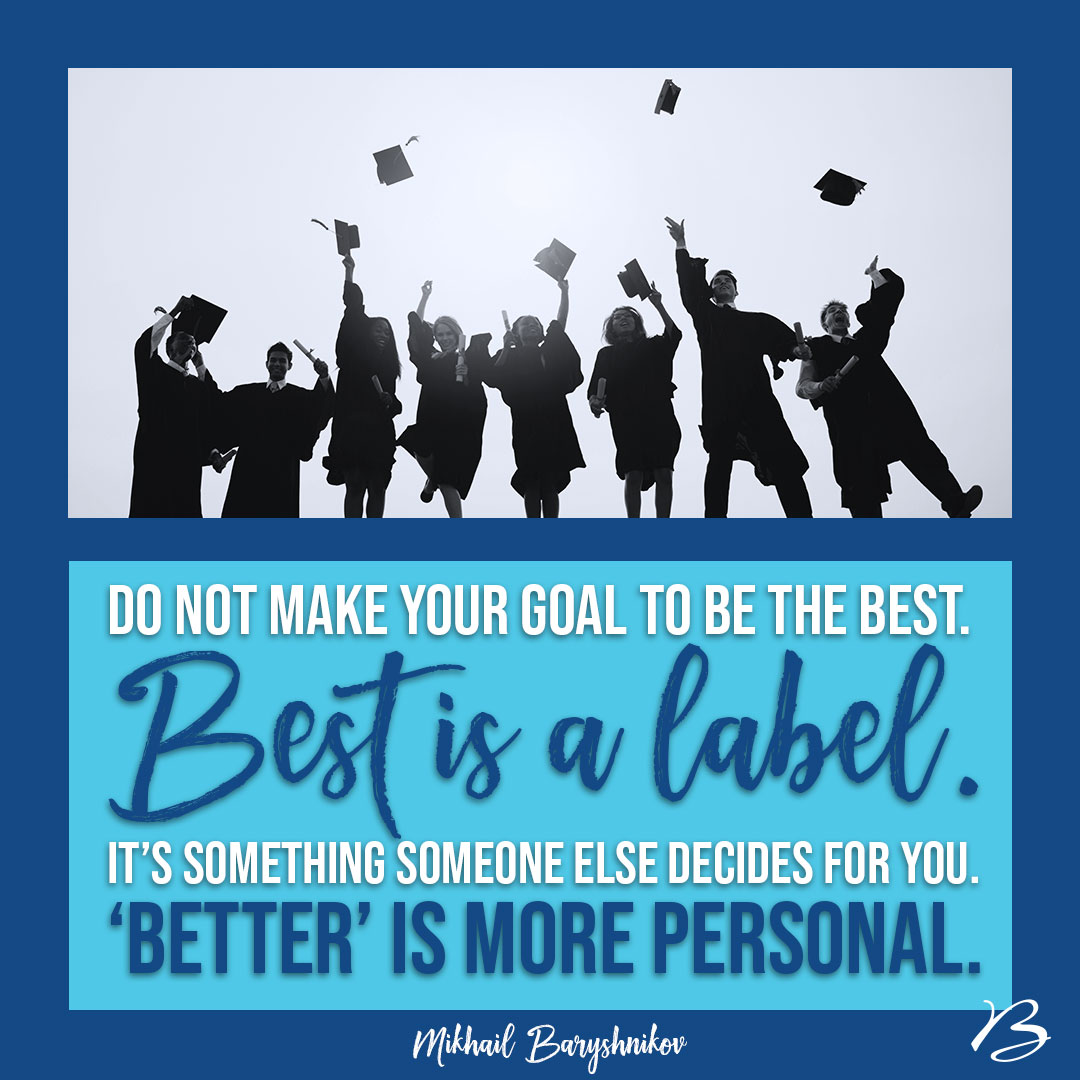
AIM TO GET BETTER.
In high school, you might have been the “best” at something— only to find that in college, you’re middle of the pack. That’s more than okay— it’s as it should be! “Best” is no longer the aim. Life beyond college is all about challenging yourself to get better, every day. Get started while you’ve got a community of supportive peers and teachers.
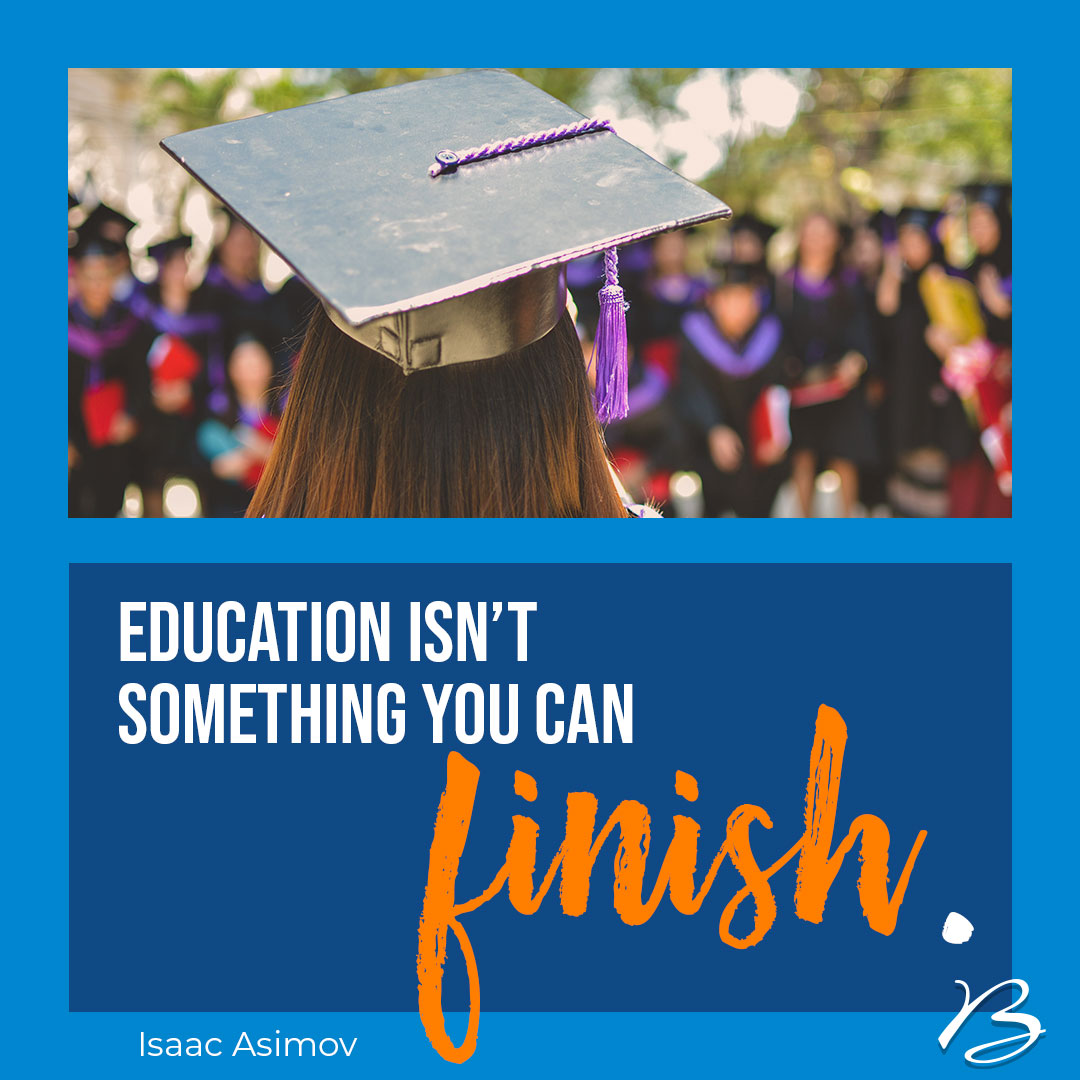
CHANGE YOUR PERSPECTIVE ON 'GRADUATION'
For so many high school and college students, graduation is a goal—and a valuable one! But graduation should never represent an end to learning. Instead, it’s a shift to a new type of learning—learning from the next chapter of your experience. In high school or college, it’s classes and tests; in life beyond school, it’s employment, bills, relationships, and everything else. And the helpful advice you receive in any chapter of your learning will always also apply to the next chapter.

